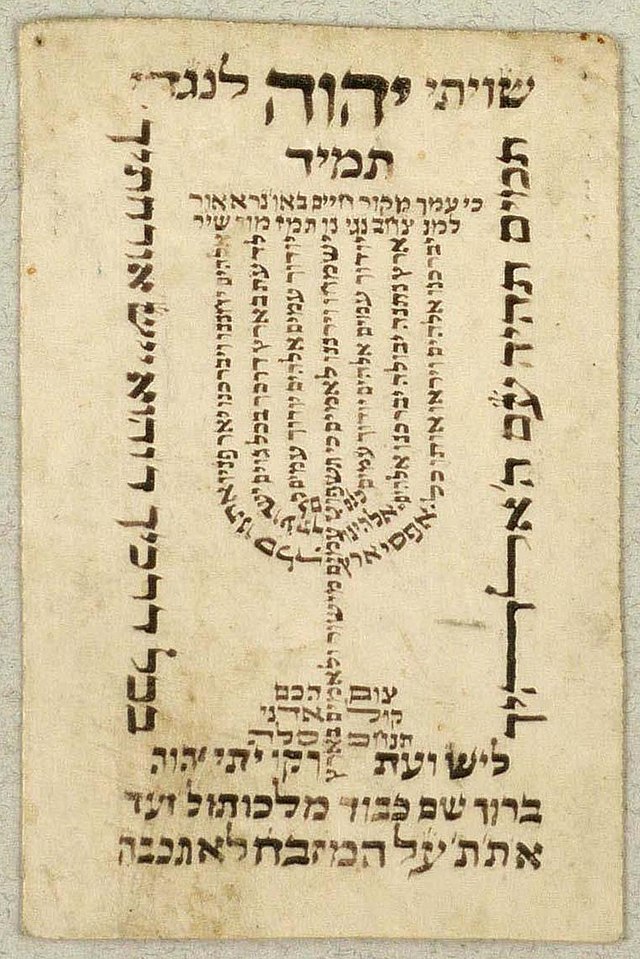Welcome to our monthly newsletter, dear reader.
• We begin our selection with an article on “An Awesome Tale that Took Place in the City of Damascus in the Time of Rabbi Moshe Galante of Blessed Memory”. This marvellous and moving tale is about the initiatic relation between the chief rabbi of Damascus and an unknown Sufi shaykh towards the end of the eighteenth century.
In the course of their conversation the sheikh asked the rabbi, saying: “I have heard tell of you, that you are a man of wisdom. Have you perchance knowledge of the wisdom of such-and-such?” And the rabbi answered: “Sir, God has granted me a little of that wisdom.” The sheikh began to test the rabbi, and the rabbi opened his mouth in that wisdom, and the sheikh realized that he was chock full of that wisdom. Now, the sheikh had thought that no-one was like him; when he recognized the wisdom of the rabbi, he was bound to him by a great love, and said to him: “My brother, my friend: know that today you have caused me great joy by your wisdom. I therefore entreat you not to refrain from visiting me at least once a week, so that I may enjoy conversing with you about matters of wisdom.”
Hebrew calligraphy of the name of God, as used for meditation.
• Next we present two brief and powerful prefaces to sutras by Master Wonhyo (7th century), one the luminaries of Korean Buddhism, taking us deep into the metaphysical reaches of Buddhist scripture.
Now, the fount of the One Mind is free from existence and non-existence and is independently pure. The ocean of the three levels of apprehension of emptiness merges the absolute and conventional and is perfectly calm. While calmly fusing two, it is not one. Independently pure, it is free from extremes, but does not lie in the center.
• And we complete our selection with an excerpt of “The Arrow Prayer in the Coptic Tradition”, by Fr. Anthony St. Shenouda, giving an overview of the combative aspect of the way of ceaseless prayer as practiced in the early church, particularly the Eastern monastic communities.
I think there is no labour greater than that of prayer to God. For every time a man wants to pray, his enemies, the demons, want to prevent him, for they know that it is only by turning him from prayer that they can hinder his journey. Whatever good work a man undertakes, if he perseveres in it, he will attain rest. But prayer is warfare to the last breath.
We would like to draw your attention to the recent publication of An Introduction to Qur’anic Ecology and Resonances with Laudato Si’, by Farhana Mayer, fully downloadable for free on this link.




